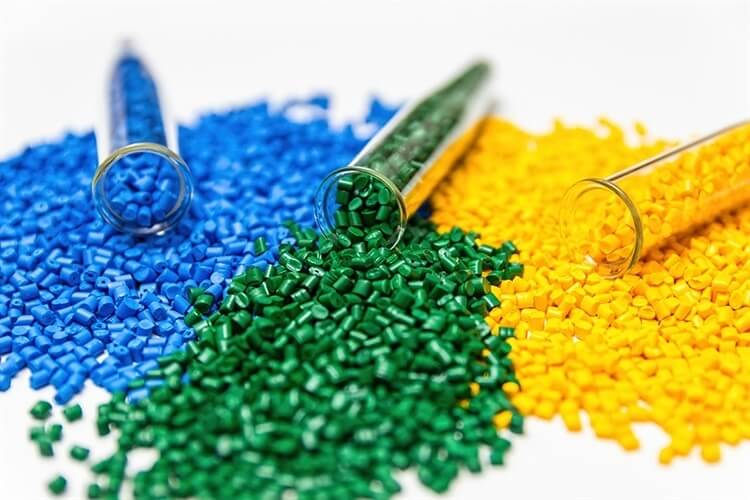Newest Growths in Polymers: Cutting-Edge Innovation
Checking Out the Varied Applications and Benefits of Polymers in Different Industries
Polymers, with their varied variety of properties and capabilities, have actually come to be important in different sectors, each gaining distinct advantages from their application. From enhancing safety and performance in the auto sector to transforming clinical gadgets in the medical care sector, polymers play an essential function.
Automotive Market Applications
Polymers play a pivotal role in boosting the performance and sturdiness of different parts within the automotive industry. These flexible products are extensively used in the manufacturing of various components, ranging from interior elements to under-the-hood applications. One prominent use polymers in the automotive sector remains in the production of light-weight elements. By changing standard metal get rid of polymer-based options, automobiles can accomplish improved gas effectiveness without compromising on strength or safety.

Healthcare Sector Benefits
In various medical care applications, the benefits of using polymers are commonly acknowledged for their diverse series of advantageous buildings. Polymers play a critical duty in the medical care sector as a result of their adaptability, biocompatibility, and cost-effectiveness. One of the main advantages of polymers in health care is their capacity to be tailored to details demands, such as versatility, toughness, and biodegradability, making them perfect for a wide range of clinical applications.
Polymer-based materials are thoroughly used in clinical gadgets, such as catheters, implants, prosthetics, and drug shipment systems, because of their biocompatibility and capacity to imitate natural tissues. These materials can lower the risk of allergic reactions or beings rejected, improving person safety and outcomes. Furthermore, polymers are light-weight, making them ideal for wearable medical tools and guaranteeing client comfort.
Furthermore, polymers make it possible for the growth of innovative treatment methods, such as hydrogels for cells design and nanocomposites for targeted medicine distribution. Their ease of handling and sanitation makes them crucial for maintaining high criteria of hygiene in medical care setups. Generally, the varied advantages of polymers contribute dramatically to innovations in medical technology and individual care.
Ecological Advantages of Polymers

In addition, polymers can add to power financial savings due to their lightweight nature. In industries such as transport, light-weight polymer products can help lower fuel consumption and greenhouse gas emissions. Additionally, polymers can allow the growth of energy-efficient items such as insulation products that boost energy preservation in buildings.
Furthermore, polymers play a vital role in reducing water contamination. For example, the usage of polymer-based purification systems can efficiently eliminate toxins and contaminants from wastewater, safeguarding water sources and ecological communities. In general, the ecological advantages of polymers make them important possessions in promoting sustainability and environment-friendly techniques across different industries.
Polymers in Electronics and Modern Technology
Considering the enhancing demand for cutting-edge and he said sustainable solutions in contemporary markets, the assimilation of advanced polymer technologies in the realm of electronics and innovation has become a critical technique for driving effectiveness and performance. Polymers have changed the electronics market by making it possible for the manufacturing of lighter, more flexible, and sturdy electronic gadgets. From smart devices to clinical devices, polymers play an important function in improving item design and functionality.
One substantial benefit of polymers in electronics is their insulating buildings, which help shield fragile electronic parts from ecological variables and electrical interference. Furthermore, polymers are important in the growth of adaptable display screens, wearable innovation, and published electronic devices, supplying unlimited opportunities for developing wise and interconnected devices.
Moreover, making use of polymers in digital packaging has actually led to advancements in miniaturization and thermal management, boosting the general performance and integrity of digital systems. As technology continues to advance, the versatility and adaptability of polymers will undoubtedly drive additionally technology in the electronic devices industry, forming the future of innovation.
Role of Polymers in Building And Construction and Framework
The integration of sophisticated polymer products in building and facilities tasks has transformed the means structures are created click here now and constructed in modern-day times. Polymers offer many advantages in the construction sector as a result of their flexibility, toughness, and cost-effectiveness. One vital function of polymers in construction is their use in layers and sealers, giving security against environmental elements such as dampness, UV image source radiation, and corrosion. Additionally, polymers are utilized in the manufacturing of lightweight and high-strength composite products, improving the structural honesty of structures while reducing overall weight.
Additionally, polymers play a crucial role in sustainable construction techniques by enabling the advancement of energy-efficient frameworks. Protecting products made from polymers aid control interior temperature levels, decreasing the requirement for heating and cooling down systems and eventually decreasing power intake - Polymers.
Conclusion
In conclusion, polymers play a vital function in various industries such as auto, medical care, environmental, electronics, and building. Their functional residential properties make them useful in developing cutting-edge remedies and items. From enhancing gas efficiency in lorries to boosting medical gadgets, polymers provide numerous benefits. In addition, their influence on decreasing waste and advertising sustainability highlights their importance in contemporary applications. The extensive usage of polymers demonstrates their considerable payment to progressing technology and boosting lifestyle.